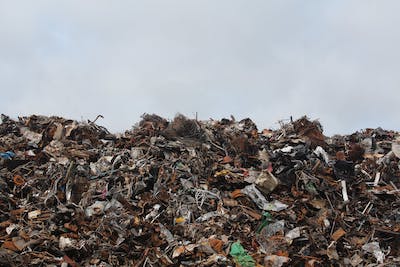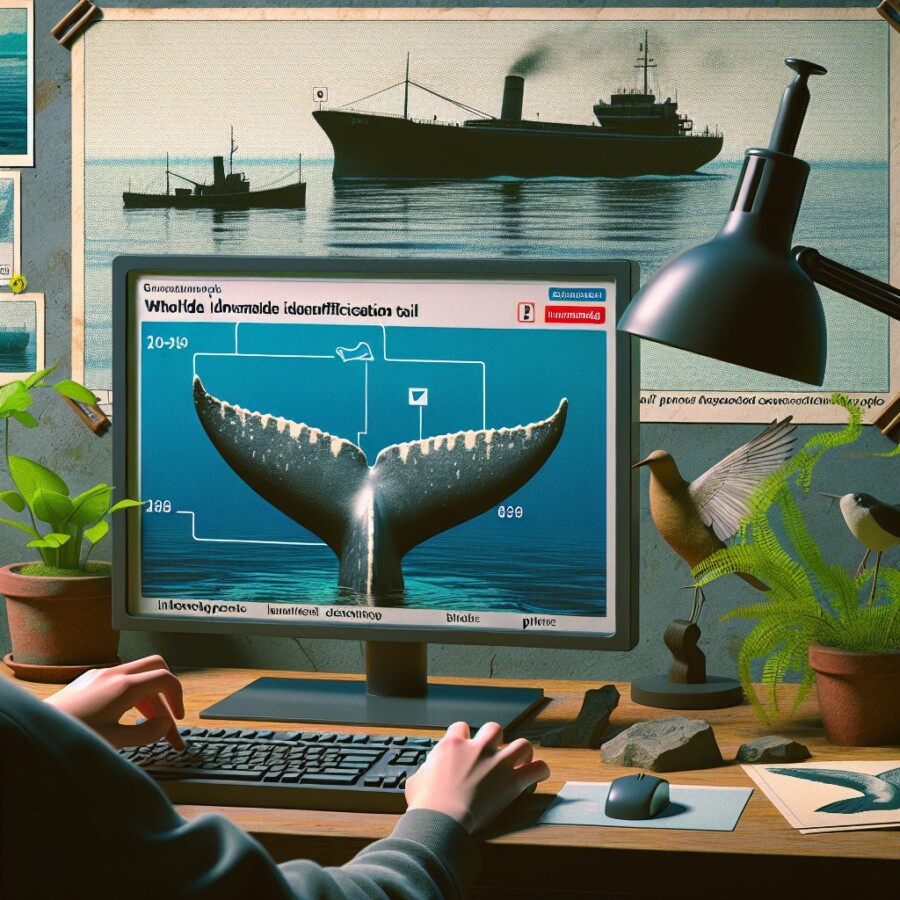Bedbugs are a big problem for hotels and travel companies. They are looking for ways to get rid of them. A tech company in Cambridge has made a smart trap that can catch bedbugs. It is connected to a system that sends an alert online when bedbugs are found. This helps hotels and travel companies take action quickly to stop the bedbugs from spreading.
The smart trap works by using heat, carbon dioxide, and chemicals that smell like humans. This attracts the bedbugs into the trap, where they get caught and can’t get out. Then, the online alert system tells the hotel or travel company that there are bedbugs. They can then do something about it right away.
This new solution is really helpful for hotels and travel companies. It helps them find bedbugs early and stop them from becoming a big problem. This is important because it keeps the guests safe and happy, and it also protects the reputation of the hotel or travel company.
The lab in Cambridge is doing important work to fight bedbugs. Their smart trap and online alert system are a great way to find and stop bedbugs. With this technology, hotels and travel companies can deal with bedbugs and make sure their guests have a safe and comfortable stay.
Original news source: Inside the lab building bedbug detectors (BBC)
Listen
Slow
Normal
Fast
Group or Classroom Activities
Warm-up Activities:
– News Summary
Instructions: Divide the class into pairs or small groups. Give each group a few minutes to read the article. Then, ask them to summarize the main points of the article in their own words. Encourage them to use the key vocabulary and concepts from the article. After a few minutes, have each group share their summaries with the class.
– Opinion Poll
Instructions: Divide the class into pairs or small groups. Ask each group to discuss and come up with their own opinions about the article. For example, they could discuss whether they think the smart trap is a good solution for dealing with bedbugs, or if there are any potential drawbacks to this technology. After a few minutes, have each group share their opinions with the class.
– Vocabulary Pictionary
Instructions: Write a list of key vocabulary words from the article on the board. Divide the class into pairs or small groups. Give each group a whiteboard or piece of paper. One person from each group will choose a word from the list and draw a picture to represent that word. The other members of the group must guess the word based on the drawing. Encourage them to use the vocabulary words in sentences as they guess.
– Pros and Cons
Instructions: Divide the class into pairs or small groups. Ask each group to discuss the advantages and disadvantages of the smart trap and online alert system mentioned in the article. They can consider factors such as effectiveness, cost, and any potential ethical concerns. After a few minutes, have each group share their ideas with the class.
– Future Predictions
Instructions: Ask the class to imagine that it is five years in the future. In pairs or small groups, have them discuss and make predictions about how technology might continue to evolve to combat bedbugs. They can consider things like new inventions, improvements to existing technology, or any other ideas they have. After a few minutes, have each group share their predictions with the class.
Comprehension Questions:
1. What problem are hotels and travel companies trying to solve?
2. How does the smart trap catch bedbugs?
3. What does the online alert system do?
4. Why is it important for hotels and travel companies to find bedbugs early?
5. How does the smart trap help keep guests safe and happy?
6. What is the purpose of the lab in Cambridge’s work?
7. How can hotels and travel companies deal with bedbugs using this technology?
8. Why is it important for hotels and travel companies to protect their reputation?
Go to answers ⇩
Listen and Fill in the Gaps:
Bedbugs are a big problem for (1)______ and travel companies. They are looking for ways to get rid of them. A tech (2)______ in Cambridge has made a smart trap that can catch bedbugs. It is connected to a system that (3)______ an (4)______ online when bedbugs are found. This helps hotels and travel companies take action quickly to stop the bedbugs from spreading.
The smart trap works by using heat, carbon dioxide, and chemicals that smell like (5)______. This attracts the bedbugs into the trap, where they get caught and can’t get out. Then, the online alert system (6)______ the (7)______ or (8)______ company that there are bedbugs. They can then do something about it right away.
This new solution is really helpful for hotels and travel companies. It (9)______ them find bedbugs early and stop them from becoming a big (10)______. This is (11)______ because it keeps the guests safe and (12)______, and it also protects the reputation of the hotel or travel company.
The lab in Cambridge is (13)______ important work to fight (14)______. Their smart trap and online alert system are a great way to find and stop bedbugs. With this (15)______, hotels and travel companies can deal with bedbugs and make sure their (16)______ have a safe and comfortable stay.
Go to answers ⇩
Discussion Questions:
Students can ask a partner these questions, or discuss them as a group.
1. What is a bedbug and why are they a problem for hotels and travel companies?
2. How do you think hotels and travel companies feel when they find out they have bedbugs?
3. Do you think it’s important for hotels and travel companies to take action quickly when they find bedbugs? Why or why not?
4. How would you feel if you found out your hotel room had bedbugs?
5. Do you think this smart trap is a good solution for catching bedbugs? Why or why not?
6. What do you think would happen if hotels and travel companies didn’t have a way to catch bedbugs quickly?
7. How do you think guests would feel if they found out a hotel they stayed at had bedbugs?
8. Have you ever encountered bedbugs before? How did you handle the situation?
9. Do you think this smart trap and online alert system will make hotels and travel companies more popular? Why or why not?
10. What other methods do you think hotels and travel companies could use to get rid of bedbugs?
11. How important do you think it is for hotels and travel companies to keep their guests safe and happy?
12. Do you like the idea of using heat, carbon dioxide, and chemicals that smell like humans to attract bedbugs? Why or why not?
13. How do you think the reputation of a hotel or travel company would be affected if they had a bedbug problem?
14. Do you think it’s the responsibility of the hotel or travel company to take care of bedbugs, or should the guests be responsible? Why or why not?
15. Would you stay at a hotel that had a bedbug problem in the past? Why or why not?
Individual Activities
Vocabulary Meanings:
Match each word to its meaning.
Words:
1. bedbugs
2. trap
3. alert
4. system
5. solution
6. reputation
7. guests
8. technology
Meanings:
(a) The use of scientific knowledge to solve problems
(b) Something that catches and holds bedbugs
(c) The opinion that people have about someone or something
(d) People who stay at a hotel or travel company
(e) A group of things that work together
(f) An answer to a problem or difficulty
(g) Small insects that live in beds and bite people
(h) A message that tells you something important
Go to answers ⇩
Multiple Choice Questions:
1. What problem do hotels and travel companies have?
(a) Bedbugs
(b) Cockroaches
(c) Mosquitoes
(d) Ants
2. How does the smart trap catch bedbugs?
(a) Using sound waves
(b) Using bright lights
(c) Using heat, carbon dioxide, and chemicals that smell like humans
(d) Using a vacuum
3. What does the online alert system do?
(a) Plays a loud noise to scare away bedbugs
(b) Sends an alert when bedbugs are found
(c) Sprays chemicals to kill bedbugs
(d) Shines a bright light to attract bedbugs
4. Why is the smart trap and online alert system helpful for hotels and travel companies?
(a) It helps them attract more guests
(b) It helps them save money on pest control
(c) It helps them advertise their services
(d) It helps them find bedbugs early and stop them from spreading
5. What does the article say is important about finding bedbugs early?
(a) It saves the hotels and travel companies money
(b) It keeps the guests safe and happy
(c) It helps the lab in Cambridge
(d) It helps the reputation of the hotel or travel company
6. What does the lab in Cambridge do to fight bedbugs?
(a) Trains dogs to sniff out bedbugs
(b) Sprays chemicals in hotels and travel companies
(c) Develops smart traps and online alert systems
(d) Teaches people how to prevent bedbugs
7. What does the article say about the technology used in the smart trap and online alert system?
(a) It is expensive and difficult to use
(b) It is not effective in catching bedbugs
(c) It is only used in Cambridge
(d) It helps hotels and travel companies deal with bedbugs
8. What is the main goal of hotels and travel companies in dealing with bedbugs?
(a) To ensure their guests have a safe and comfortable stay
(b) To make more money
(c) To attract more guests
(d) To protect the reputation of the lab in Cambridge
Go to answers ⇩
True or False Questions:
1. The smart trap and online alert system ensure the danger and dissatisfaction of guests, as well as harm the reputation of the hotel or travel company.
2. Bedbugs are a major issue for hotels and travel companies.
3. A tech company in Cambridge has created a smart trap to catch bedbugs.
4. This new solution helps schools and daycares detect bedbugs early and prevent them from spreading.
5. The lab in Cambridge is making significant progress in the fight against bedbugs with their innovative technology.
6. The online alert system allows hotels and travel companies to take immediate action against bedbugs.
7. The smart trap is disconnected from an online alert system that notifies hotels and travel companies when bedbugs are found.
8. The trap uses cold, carbon monoxide, and chemicals that smell like animals to attract and capture bedbugs.
Go to answers ⇩
Write a Summary:
Write a summary of this news article in two sentences.
Check your writing now with the best free AI for English writing!
Writing Questions:
Answer the following questions. Write as much as you can for each answer.
Check your answers with our free English writing assistant!
1. What problem are hotels and travel companies trying to solve?
2. How does the smart trap work to catch bedbugs?
3. Why is the online alert system important for hotels and travel companies?
4. What are the benefits of using the smart trap and online alert system?
5. What is the goal of the lab in Cambridge in fighting bedbugs?
Answers
Comprehension Question Answers:
1. What problem are hotels and travel companies trying to solve?
Hotels and travel companies are trying to solve the problem of bedbugs.
2. How does the smart trap catch bedbugs?
The smart trap catches bedbugs by using heat, carbon dioxide, and chemicals that smell like humans to attract them into the trap.
3. What does the online alert system do?
The online alert system sends an alert to the hotel or travel company when bedbugs are found, so they can take action quickly.
4. Why is it important for hotels and travel companies to find bedbugs early?
It is important for hotels and travel companies to find bedbugs early because it allows them to stop the bedbugs from spreading and becoming a bigger problem.
5. How does the smart trap help keep guests safe and happy?
The smart trap helps keep guests safe and happy by catching bedbugs early and preventing them from biting or bothering the guests.
6. What is the purpose of the lab in Cambridge’s work?
The purpose of the lab in Cambridge’s work is to develop solutions to fight bedbugs, such as the smart trap and online alert system.
7. How can hotels and travel companies deal with bedbugs using this technology?
Hotels and travel companies can deal with bedbugs using this technology by receiving alerts when bedbugs are found and taking immediate action to eliminate them.
8. Why is it important for hotels and travel companies to protect their reputation?
It is important for hotels and travel companies to protect their reputation because a bedbug infestation can lead to negative reviews and loss of customers. By effectively dealing with bedbugs, they can maintain a positive reputation and ensure customer satisfaction.
Go back to questions ⇧
Listen and Fill in the Gaps Answers:
(1) hotels
(2) company
(3) sends
(4) alert
(5) humans
(6) tells
(7) hotel
(8) travel
(9) helps
(10) problem
(11) important
(12) happy
(13) doing
(14) bedbugs
(15) technology
(16) guests
Go back to questions ⇧
Vocabulary Meanings Answers:
1. bedbugs
Answer: (g) Small insects that live in beds and bite people
2. trap
Answer: (b) Something that catches and holds bedbugs
3. alert
Answer: (h) A message that tells you something important
4. system
Answer: (e) A group of things that work together
5. solution
Answer: (f) An answer to a problem or difficulty
6. reputation
Answer: (c) The opinion that people have about someone or something
7. guests
Answer: (d) People who stay at a hotel or travel company
8. technology
Answer: (a) The use of scientific knowledge to solve problems
Go back to questions ⇧
Multiple Choice Answers:
1. What problem do hotels and travel companies have?
Answer: (a) Bedbugs
2. How does the smart trap catch bedbugs?
Answer: (c) Using heat, carbon dioxide, and chemicals that smell like humans
3. What does the online alert system do?
Answer: (b) Sends an alert when bedbugs are found
4. Why is the smart trap and online alert system helpful for hotels and travel companies?
Answer: (d) It helps them find bedbugs early and stop them from spreading
5. What does the article say is important about finding bedbugs early?
Answer: (b) It keeps the guests safe and happy
6. What does the lab in Cambridge do to fight bedbugs?
Answer: (c) Develops smart traps and online alert systems
7. What does the article say about the technology used in the smart trap and online alert system?
Answer: (d) It helps hotels and travel companies deal with bedbugs
8. What is the main goal of hotels and travel companies in dealing with bedbugs?
Answer: (a) To ensure their guests have a safe and comfortable stay
Go back to questions ⇧
True or False Answers:
1. The smart trap and online alert system ensure the danger and dissatisfaction of guests, as well as harm the reputation of the hotel or travel company. (Answer: False)
2. Bedbugs are a major issue for hotels and travel companies. (Answer: True)
3. A tech company in Cambridge has created a smart trap to catch bedbugs. (Answer: True)
4. This new solution helps schools and daycares detect bedbugs early and prevent them from spreading. (Answer: False)
5. The lab in Cambridge is making significant progress in the fight against bedbugs with their innovative technology. (Answer: True)
6. The online alert system allows hotels and travel companies to take immediate action against bedbugs. (Answer: True)
7. The smart trap is disconnected from an online alert system that notifies hotels and travel companies when bedbugs are found. (Answer: False)
8. The trap uses cold, carbon monoxide, and chemicals that smell like animals to attract and capture bedbugs. (Answer: False)
Go back to questions ⇧















